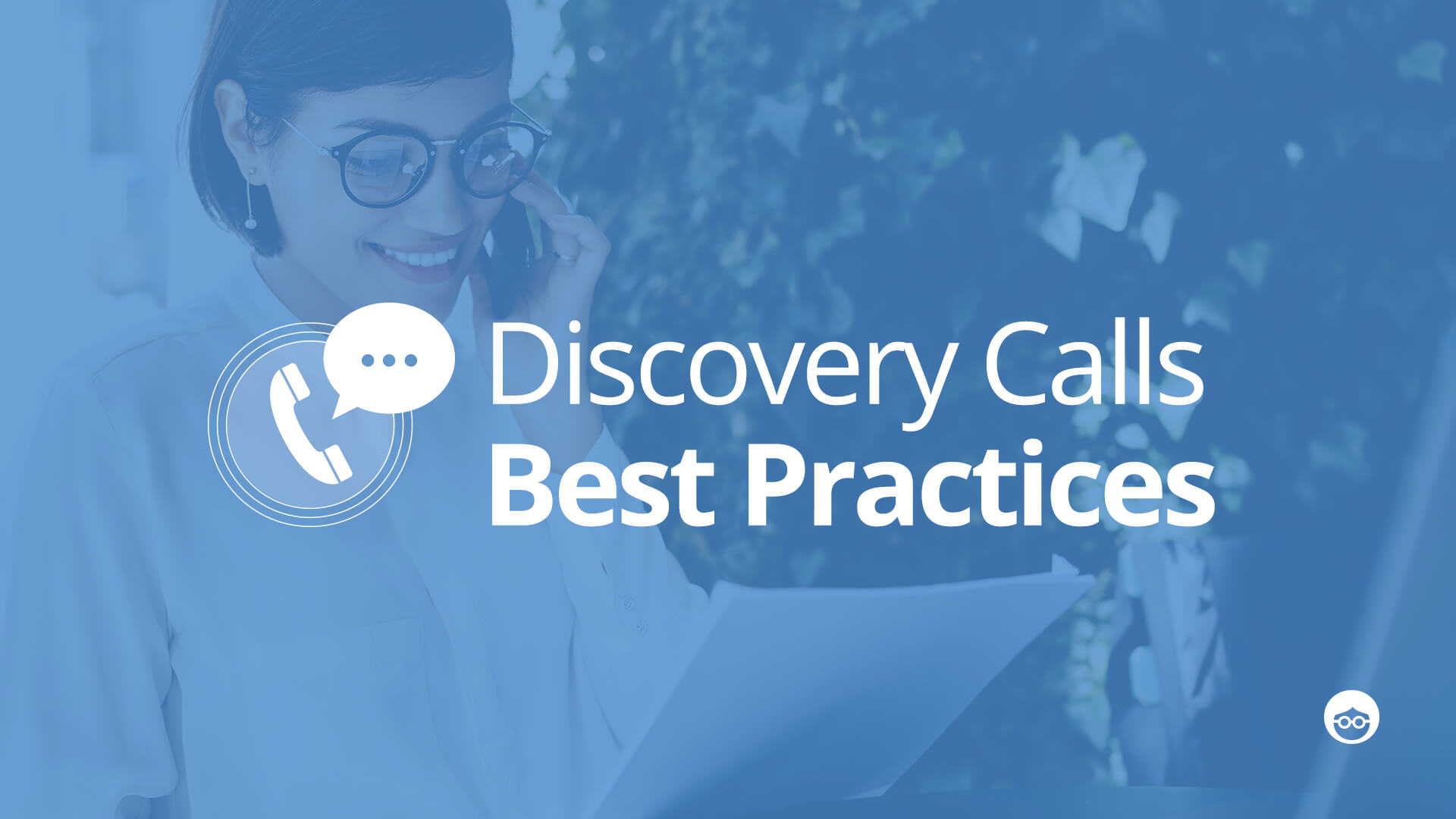How to Make the Most of Your Discovery Calls

If you are a sales or lead gen professional, then you know that the sales process is a long haul, particularly in B2B. Yet every sale begins in the same place – the discovery call.
The discovery call is your opportunity to get to know the prospect, their company, needs, pain points and goals. It’s also the prospect’s opportunity to find out what your product and service has to offer them.
The discovery call is the very foundation of the sales journey. In many ways, it can determine the success or failure of the sale. That’s why it is so important to get your discovery calls right.
So to help you make the most of the discovery call, here are a few key points to remember:
Get into the discovery call mindset
First impressions do count – which is why the first call with a lead or prospect is crucial. It’s the first step towards building a relationship with the client, and it will set the tone and expectations for them going forward.
This call will also help you qualify your prospect and figure out their true potential.
One of the most common mistakes you can make in a discovery call is to only focus on what you and your company offer, rather than focusing on the client and their needs.
That’s not to say that there is no place for you to explain your side of the story. It is important that the client understands what you can do for them.
However, you need to find the right balance between talking about your company, while also making sure the client feels heard and understood.
There’s no such thing as too much prep
This is such an important step, yet it is often skipped. Before any discovery call, you should thoroughly familiarize yourself with the company and the prospect.
Remember, this is not a last-minute rush job just before you pick up the phone. Allocate generous time for it in your calendar, enough to get it done right.
Here are a few ways you can research the prospect and prep for your call:
- Check out the client’s website and make sure that you understand what the company does and their business model.
- Look for any news or PR regarding the company. For example, have there been any recent mergers, acquisitions, funding, new product releases, or anything else that could be worth highlighting or congratulating them about during the call?
- Knowing who you are talking to is also key, so spend a few minutes on LinkedIn and check out the prospect’s profile. Who knows – you may have some common connections, gone to the same school, or worked at the same company!
- If you have an updated CRM, double check if there is any client history. They may have worked with you in the past.
Set clear and specific goals
Your goal for the discovery call should be to gather as much information from your prospect as possible.
A good practice to achieve this is to set the agenda at the beginning of the call. Then the client will have a better understanding of what to expect overall. What’s more, it’s a great way to let them know that the main purpose of the call is for you to learn about them. Knowing that your focus is on them will help ease their mind and open them up to giving you the information you need.
One way to make sure you achieve your discovery call goals is by creating a ‘checklist’ of the information you want to gather during the call. You shouldn’t finish a call without making sure you have the information you need.
Here’s an example of some of the information you might want to gather about the client during the discovery call:
- Company Background
- Competitors
- Target Audience
- Goal
- Budget
Remember, the ‘checklist’ is for you only. The true beauty of a discovery call is that you can qualify a prospect by getting the information in conversation mode, which helps set the tone for a positive relationship down the road. Use the checklist to organize your own thoughts, but make sure the client never feels as if they are answering a questionnaire. Polish your conversational skills to make it friendly and fun.
Know the possible outcomes
Although discovery calls are conversational in nature, they shouldn’t be impromptu! The best discovery calls are very well planned, without feeling stilted. One way to achieve this is by mapping out the possible outcomes of the call, so you are not trying to figure out what to do on the fly. It also makes the post-call process a lot smoother.
Here’s an example of possible defined outcomes from a discovery call:
- Scenario A: Client meets criteria>> Next step – Set up an in-person meeting to do a deep dive on what your company can really do for the client.
- Scenario B: Client doesn’t meet criteria>> Next step – Send information about what your company offers via email, and ask to touch base in the future at a more opportune time.
Take some time to think about the different ways your discovery call could go and the various post-call actions that would be best under the specific circumstances.
Take lots and lots of notes
Make sure to take notes during the call. Lots and lots of notes, if necessary. Don’t expect that you’ll remember all the details after the call. During the conversation, jot down important points, details about the prospect, facts and figures, and anything else that strikes you as significant. You can use the notes during the call to expand on certain points or refer back to something said earlier. Then, after the call, use the notes to summarize the most important information, and save it on your CRM for future reference.
If you prefer not to go freestyle, you can create a notes template with a bullet-point list of information worth gathering. This can help give much-needed structure to your note-taking.
End the call by getting the next call
A good indicator of a successful discovery call is whether you were able to set up the next call. Setting up the next call means that you’ve piqued the client’s interest, and they want to learn more about working with you. That’s a great sign!
Make sure to take your learnings from the discovery call and put them to good use for the next call. Leverage the information gathered during discovery to focus your next sales calls with a deeper discussion of the client’s pain points, and how your solution can be tailored specifically to them.
The discovery call is not the first stage of the sales process. Before you even pick up the phone, there’s lots of prep work to be done. Then, when you’re ready to open the conversation, remember to always keep the client at the center.
In the wise words of Dale Carnegie, author of the classic How to Win Friends and Influence People:
“Talk to someone about themselves and they’ll listen for hours.”
The discovery call is not about your amazing product; it’s about what your product can do for the client to make them amazing. Remember this, and your discovery call will bring results.













